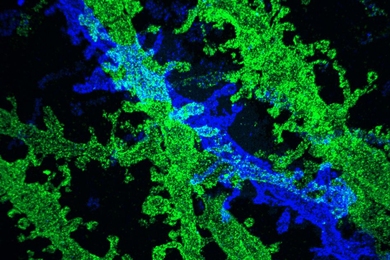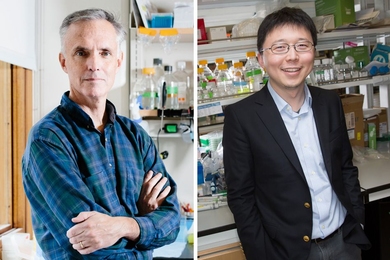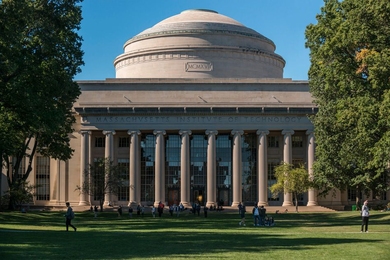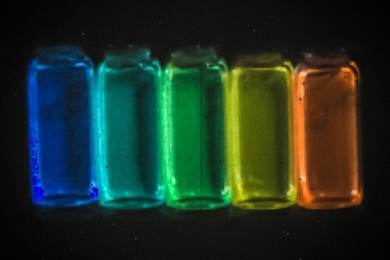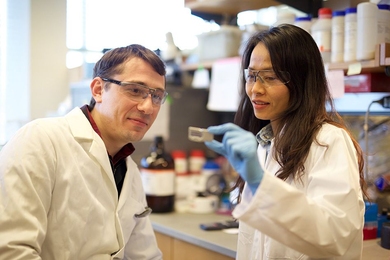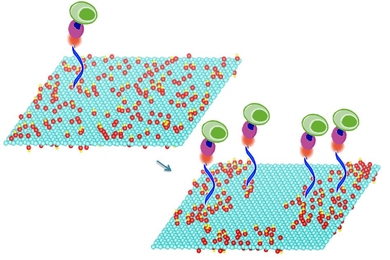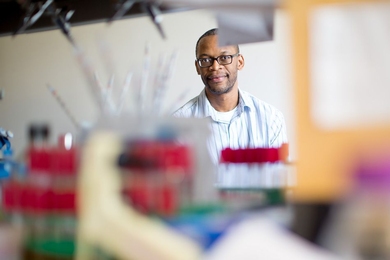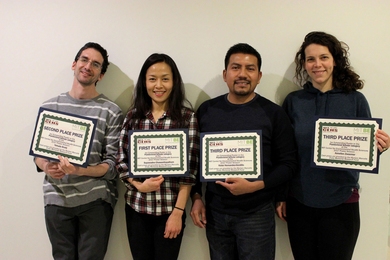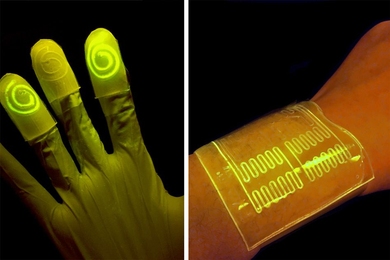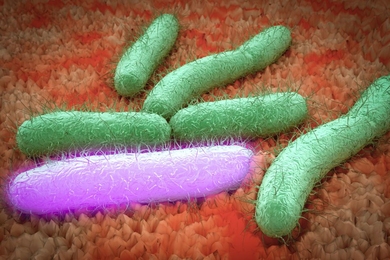J-WAFS awards $1.4 million in third round of seed grant funding
Principal investigators will receive grants of up to $200,000 per year for two years, overhead free, for innovative research on food and water challenges.
Three MIT alumni win 2017 Paul and Daisy Soros Fellowships for New Americans
Fellowship funds graduate school studies for exceptional immigrants and children of immigrants.
High-resolution imaging with conventional microscopes
Tissue-expansion technique could allow scientists to map brain circuits.
Scientists unveil CRISPR-based diagnostic platform
New system adapts tool known for gene editing; to be used in rapid, inexpensive disease diagnosis.
Eleven from MIT elected to American Academy of Arts and Sciences for 2017
Prestigious honor society announces 228 new members this year.
Nanoparticles open new window for biological imaging
“Quantum dots” that emit infrared light enable highly detailed images of internal body structures.
Detecting mutations could lead to earlier liver cancer diagnosis
New technique can reveal exposure to aflatoxin, a potent carcinogen, before tumors develop.
Tracking the spread of bird flu
Asian flu strains can enter North America through Alaska, study finds.
Graphene sheets capture cells efficiently
New method could enable pinpoint diagnostics on individual blood cells.
Taking aim at a key malaria molecule
Measuring the parasite’s heme levels could help scientists develop better antimalarial drugs.
Center for Environmental Health Sciences selects 2017 poster winners
Annual poster session showcases recent work on biological effects of exposure to environmental agents.
3Q: US patent office’s ruling on CRISPR
Charles Jennings of MIT’s McGovern Institute discusses the intellectual property dispute over the gene-editing technique.
Living sensors at your fingertips
Cell-infused gloves and bandages light up when in contact with certain chemicals.



